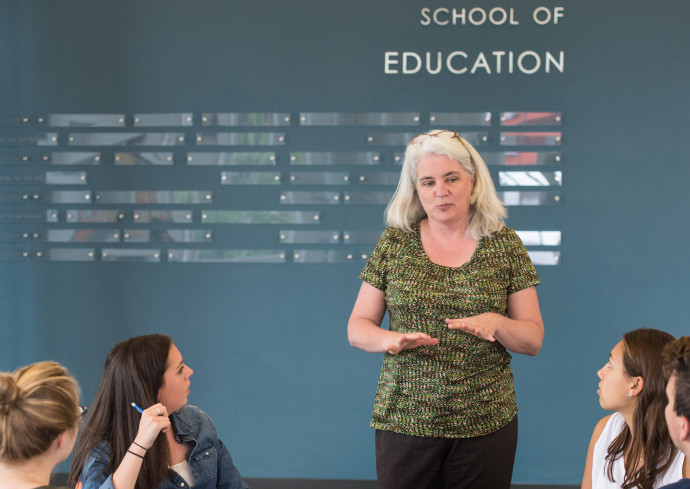Lender Center Researcher Studies Veterans’ Post-Service Lives, Global Conflict Dynamics
Corri Zoli ’91, G’93, G’04 was recently named a research associate of the Lender Center for Social Justice. She applies social science, law and public policy perspectives to problems of warfare, governance in modern human conflicts and the role of…


 The process of teaching is, by its nature, subject to constant change. Educators, from preschool through higher education, must stay abreast of societal issues, new research and evolving technologies to provide their students with learning pathways to success. Now, a new accreditation process at Syracuse University’s School of Education ensures that its programs are producing effective and innovative educators, prepared to take on challenges, advance their field and shape student success for years to come.
The process of teaching is, by its nature, subject to constant change. Educators, from preschool through higher education, must stay abreast of societal issues, new research and evolving technologies to provide their students with learning pathways to success. Now, a new accreditation process at Syracuse University’s School of Education ensures that its programs are producing effective and innovative educators, prepared to take on challenges, advance their field and shape student success for years to come.